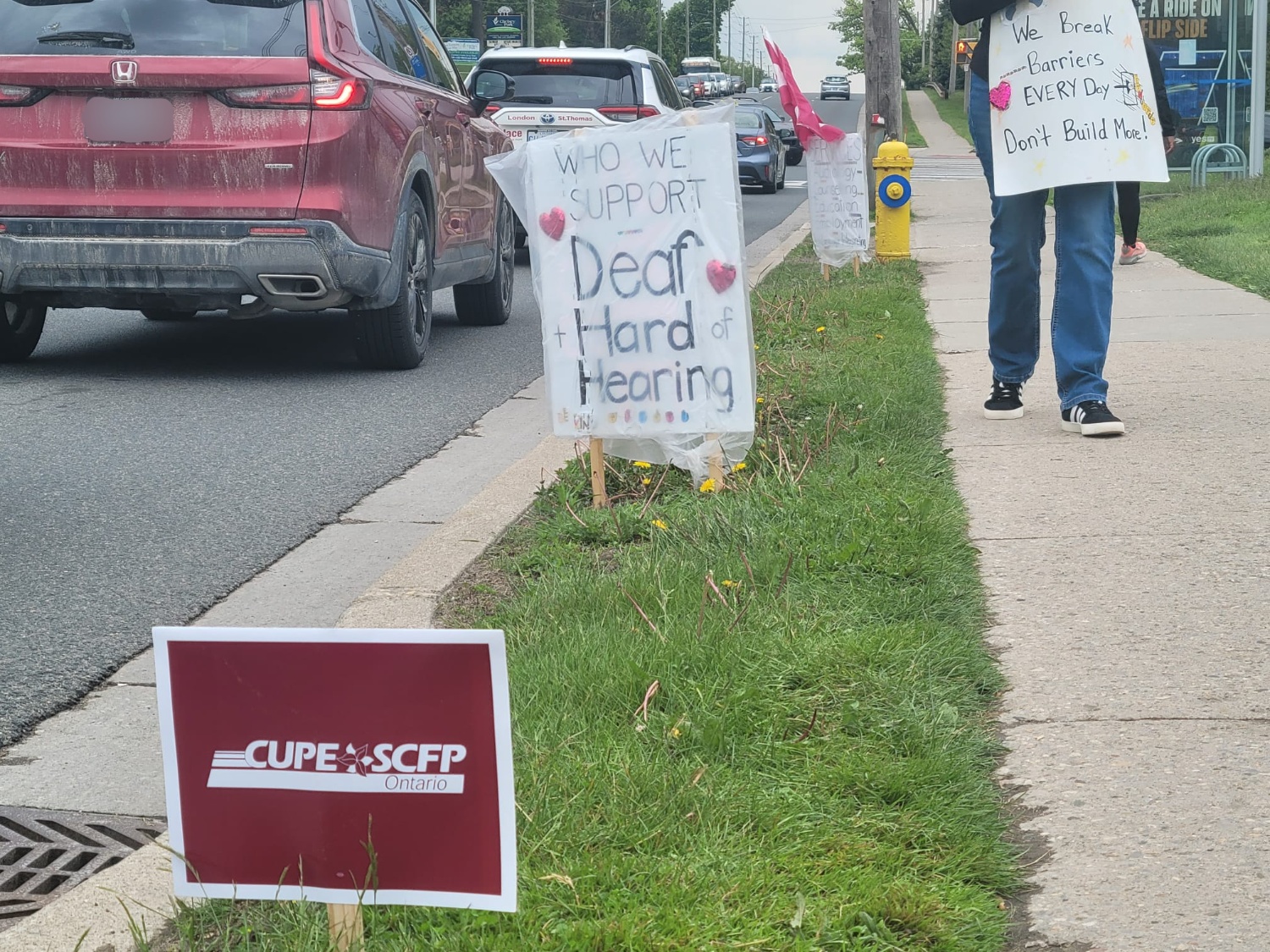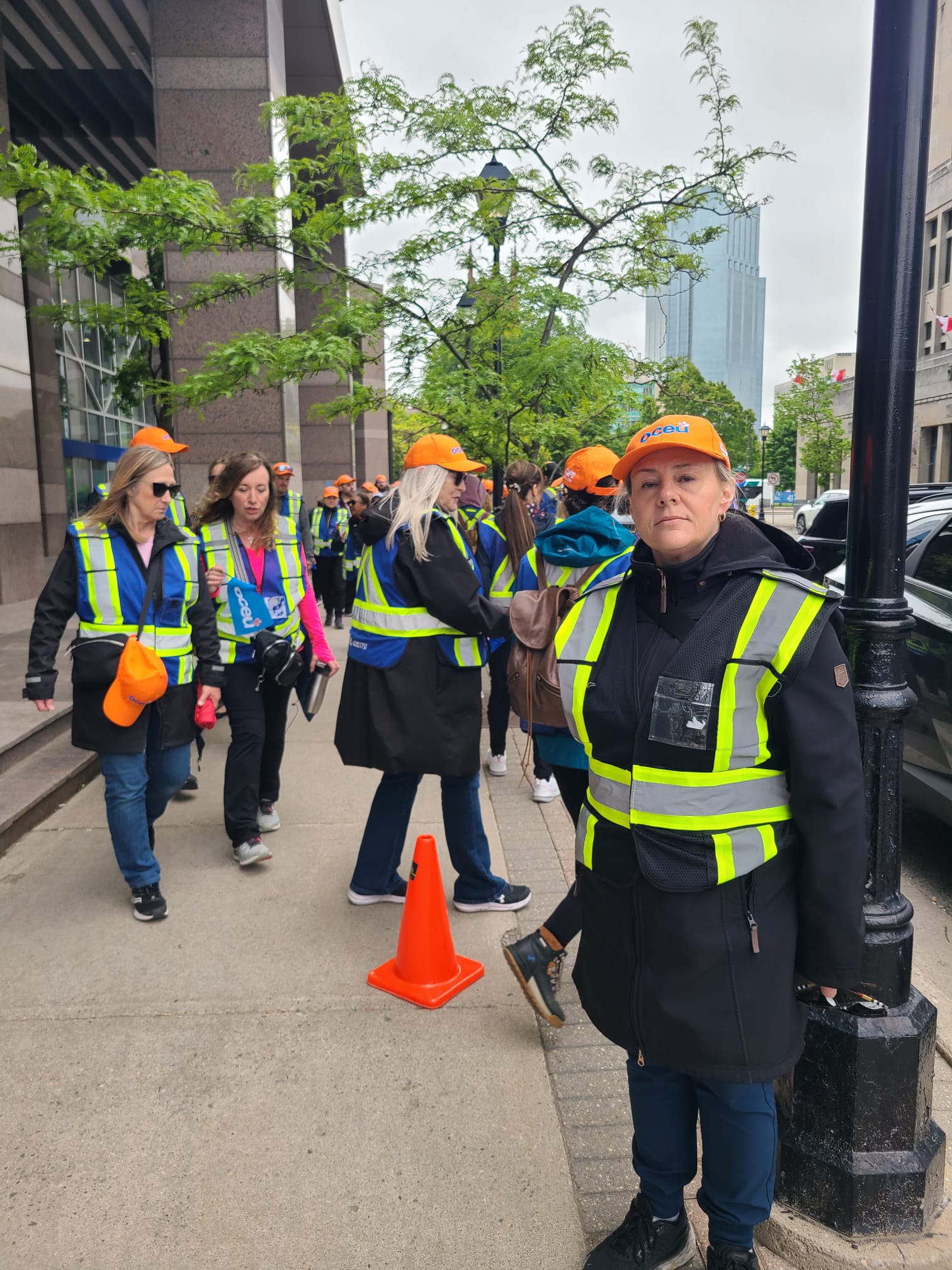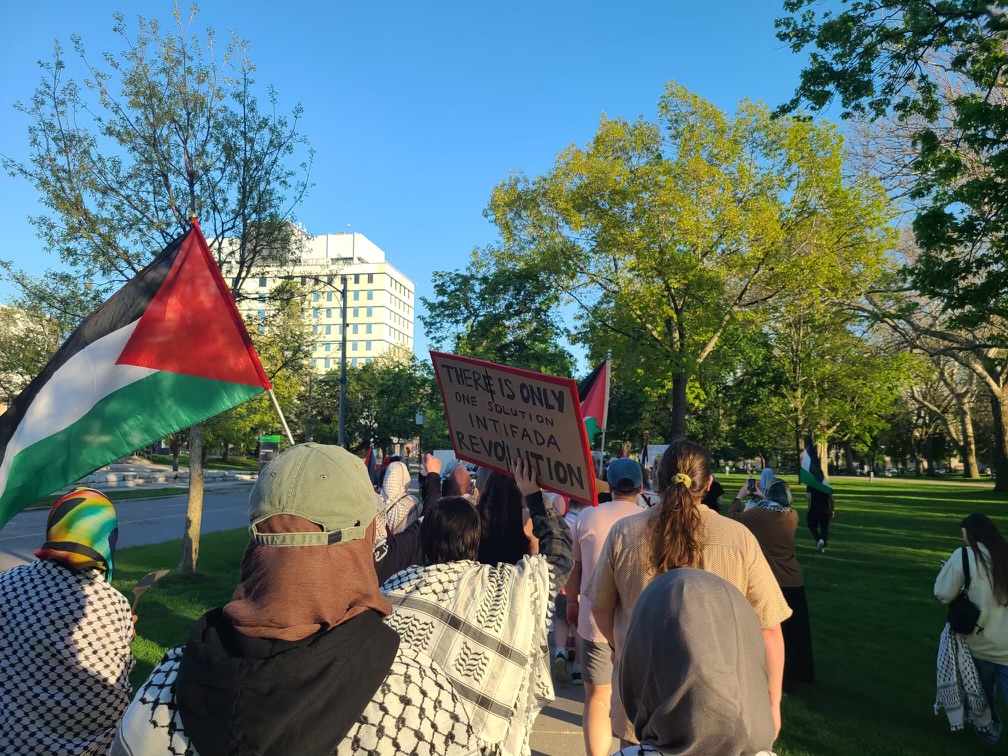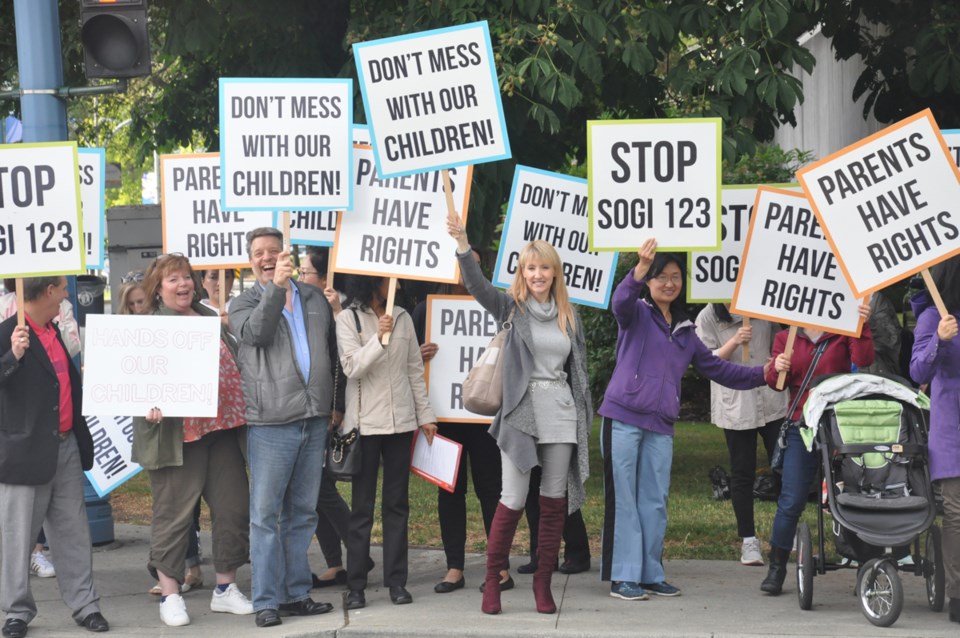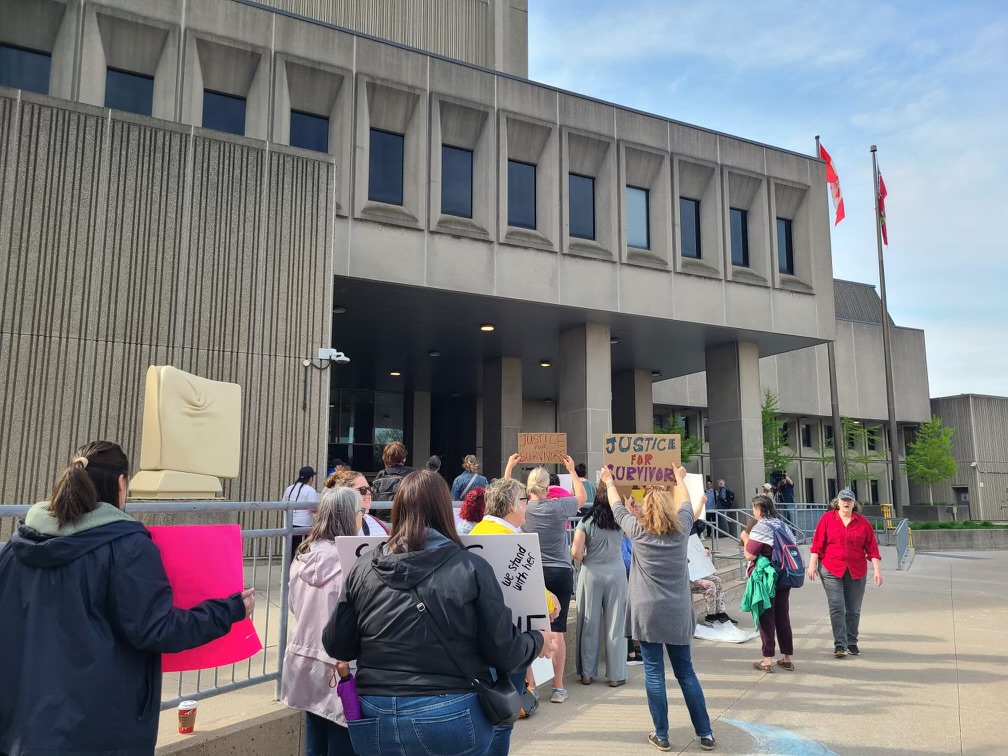ACORN’s Healthy Homes Forum: Perspectives on Landlord Licensing
Matthew Webb
Thu May 29, 2025
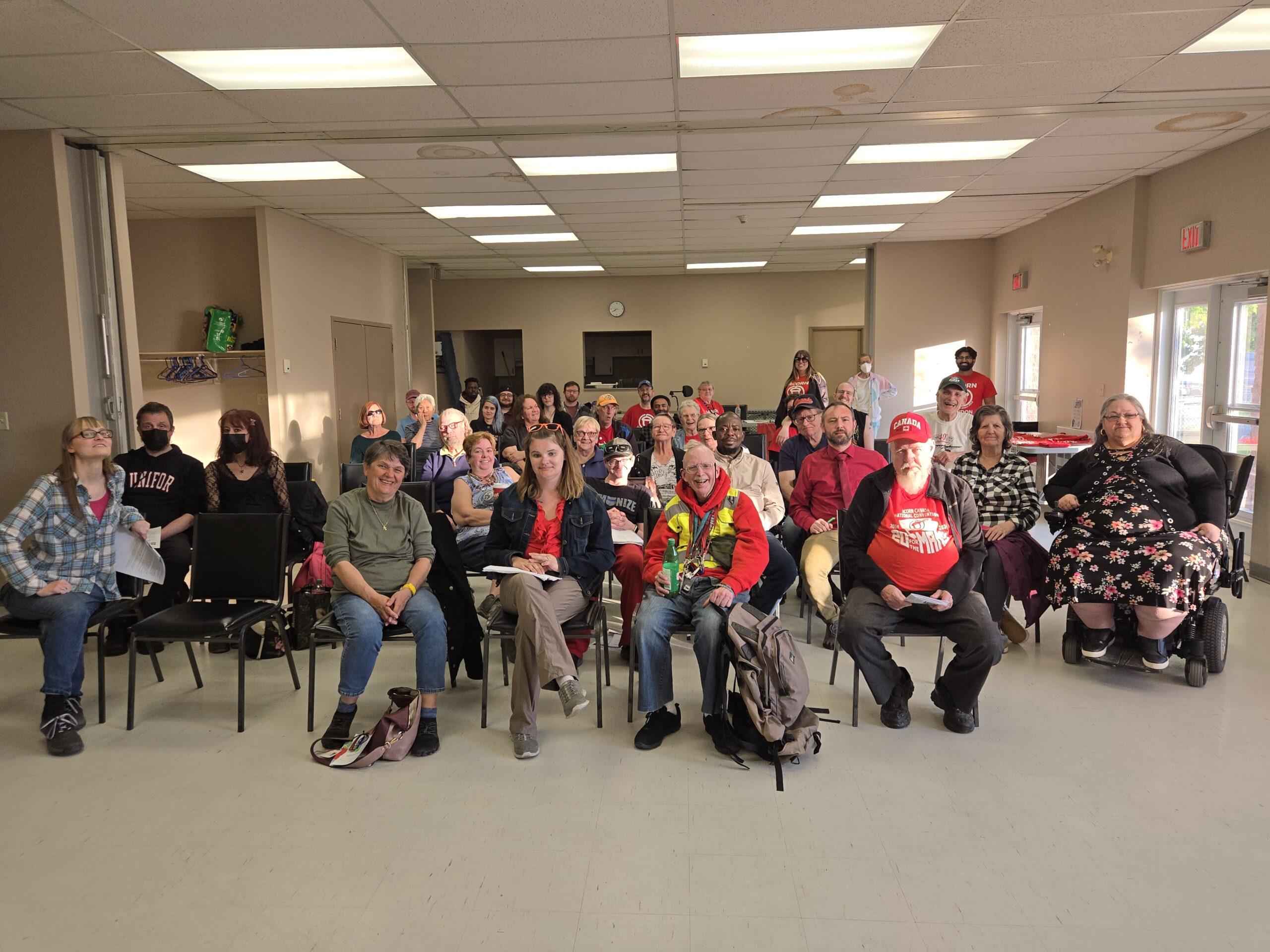
On May 8, London ACORN (Association of Community Organizations for Reform Now) held a Healthy Homes Forum to talk about the idea of landlord licensing in the city. They invited people from all over the city by canvassing at bus-stops the week before, and attending the May Day celebration held in Victoria Park. Around 40-50 people gathered at the 380 Adelaide St. office where members of the ACORN team reviewed what landlord licensing is. ACORN spoke to how other cities are approaching landlord licensing, dispelled myths about the concept, and attendees shared the issues they face in their own rental buildings. Additionally, while encouraging ACORN members in this pursuit for landlord licensing, councillor Sam Trosow spoke to the challenges a program like this has in finding support from the industry and city hall.
Farrah Sherrard, secretary at the London Central Chapter of ACORN, opened the meeting with an explanation of what landlord licensing could look like.
“In essence, we want the city to proactively inspect units in buildings to ensure that they are up to code and have a registry of all landlords in the city,” said Sherrard, arguing that this would ensure living conditions for tenants are kept at an appropriate standard.
Sherrard compared the program to a restaurant grading system.
“You expect the food to be safe to eat. Of course you don’t want cockroaches in your restaurant kitchens. You also don’t want it in your own kitchens.”
The state of rentals in London was vividly illustrated by many of the attendees. Rodents, cockroaches, and bedbugs were frequently brought up as issues. Some tenants were bitten by bedbugs every night for months. Another tenant talked about mice nesting in the oven vents, leading to respiratory issues and droppings in her food. One tenant said their building didn’t have water for 50 days last year. One tenant said their unit’s water would often come up sludgy and brown, that the ceiling in the laundry room was falling apart, and that piles of garbage were left lying around.
In some cases, these issues are just pure negligence on the part of the landlord, which can lead to such disrepair that they try to renovict the tenant. In others, it is a strategic harassment in order to push tenants out. Claire Wittnebel, Chair of ACORN London Central Chapter, explains that “landlords are incentivized to kick out long-term tenants in order to hike the rate. If they can’t take you out with an N12 or an N13, then they are going to try to make your living standards low enough that you leave on your own.” The N12 and N13 are two forms a landlord can submit to evict a tenant.
Sherrard continued to explain that, similar to a restaurant grading system, buildings would have their grade presented at the front entrance. The grade would determine how often a building needs to be inspected; if a failing grade is issued, a full audit would be triggered and punitive fines would be administered.
Sherrard went over other aspects of ACORN’s proposed licensing system. For continued non-compliance to addressing issues, the city would bill the landlord, then set a strict timeline for repairs to be made. Landlords would be responsible for maintaining and tracking tenant service requests and follow a capital maintenance plan in order to keep up with the wellbeing of the building. A capital maintenance plan makes sure that funds are allocated for different components of a building – like the furnace or roof – in order to be replaced when necessary.
To ensure tenants are kept informed, information packages on tenant rights, resources, and building updates would be provided on an ongoing basis by the landlord. And crucially, tenants would actually know who their landlord is. Sherrard asked for a show of hands for all in attendance who knew who their landlords were: over half indicated that they didn’t know who their landlord was. Apartment buildings are often owned by large companies where the landlords are removed from the actual operation of the building and tenants are left with a faceless corporation to determine their quality of life.
ACORN’s proposed program would require landlords to pay an annual per-unit licensing fee to cover the cost. City-owned buildings and non-profits would be exempt from this fee but they would still need to follow the guidelines.
The way bylaws are currently enforced, tenants are required to navigate the legal system themselves when problems arise with their landlord. ACORN believes a landlord licensing program would address issues as they arise, stopping them from becoming overblown.
The city and the industry is expected to put up a lot of resistance to the prospect of landlord licensing. Ken DeJong, another ACORN member, went through a list of excuses cities often used to discourage such licensing programs in an interactive “myths versus facts” format with attendees. Arguments about the cost of such a program were examined and refuted. Myths that were examined were around transferring that cost to the tenants, increasing property taxes, discouraging investment, or claiming the city just can’t afford it.
ACORN believes these excuses are patently false or misconstrued. DeJong outlined some of the figures for the program. The cost of this program will be paid for by the landlord at about 0.2% of the rental cost or between $3-5 from a tenant’s monthly rent. So if the cost were transferred to the tenant, it would be marginal — a small pittance paid for reassurance that the home’s needs will be met. It also shouldn’t increase the property tax as this won’t increase the property’s value; it just reassigns a small portion of the rent, which already pays for that property tax. Investment will still be made: people still need to live somewhere, the buildings are still there, and being a landlord continues to bring in exorbitant sums per unit.
Councillor Trosow spoke to London’s budget surplus of $16.9 million that city council can allocate at their discretion. Though ACORN argues that this program would be self-sustaining, if the program needed a jump start, this funding could be made available. Landlord licensing is something other cities are starting to do and is working in Toronto where, as of March 2024, building inspections are consistent to keep on top of repair needs.
Trosow wanted to encourage ACORN in this pursuit for landlord licensing; however, he made it clear that there are many hurdles to overcome for a landlord licensing program to become a reality. The current licensing program was established in 2010 and mainly addresses landlords who have fewer than 6 units.
“It was so controversial at the time — landlords went ballistic,” said Trosow, advising that attempts to expand the program would face “massive opposition.”
According to Trosow, this opposition wouldn’t just be from the landlord industry, but also from within city council, who were presented with a similar licensing proposition in 2021 when they looked at Hamilton’s Rent Safe initiative. Many of the councillors at the time — some who are still active today — “actively opposed” that program. Trosow seemed to believe that it was futile to negotiate with the current councillors who would oppose such an initiative, saying “most of these councillors have made it very clear they are not going to do some of the things [ACORN] wants them to do.”
Following his speech, an attendee asked if there was any conflict-of-interest on the council in regards to landlords and tenant rights which should preclude them from voting on such matters; Councillor Trosow chose not to comment. Instead, he affirmed the position that it is more important “who [councillors] are getting money from in the political campaign, and what’s their track record been.” He reminded attendees of the upcoming municipal election set for 2026 and that going ward-by-ward to instate more sympathetic councillors is where change might occur.
Even with the potential of an improved licensing program, there is still a concern that they may not be enforced. Trosow says “We have some good bylaws on the books. But they’re not being enforced.” Under current bylaws, tenants have to provide clear descriptions of the issues they are facing and contact bylaw enforcement multiple times for them to take notice of a concern relating to a building. It was conveyed throughout attendee testimonials that without constant hand-holding of municipal bylaw enforcement, these issues are often dropped and forgotten. There is potential that, with a better policy outlined, greater weight would be given to the seriousness of these issues and underscore for bylaw enforcement that tenant rights need to be a priority.
Whether it is preparing for challenges made by well-resourced landlords and housing corporations, developing a tenant-conscious city council, or pushing for bylaw enforcement to enforce those protections, it all comes down to one thing: tenants need to organize and fight for the protections they want to see in their home and in this city.
One way to support this initiative is by joining ACORN on July 14th in Victoria Park at 12:00. There will be testimonials from tenants and awards given to the worst landlords in the city, and a march to city hall calling for a landlord licensing program.

